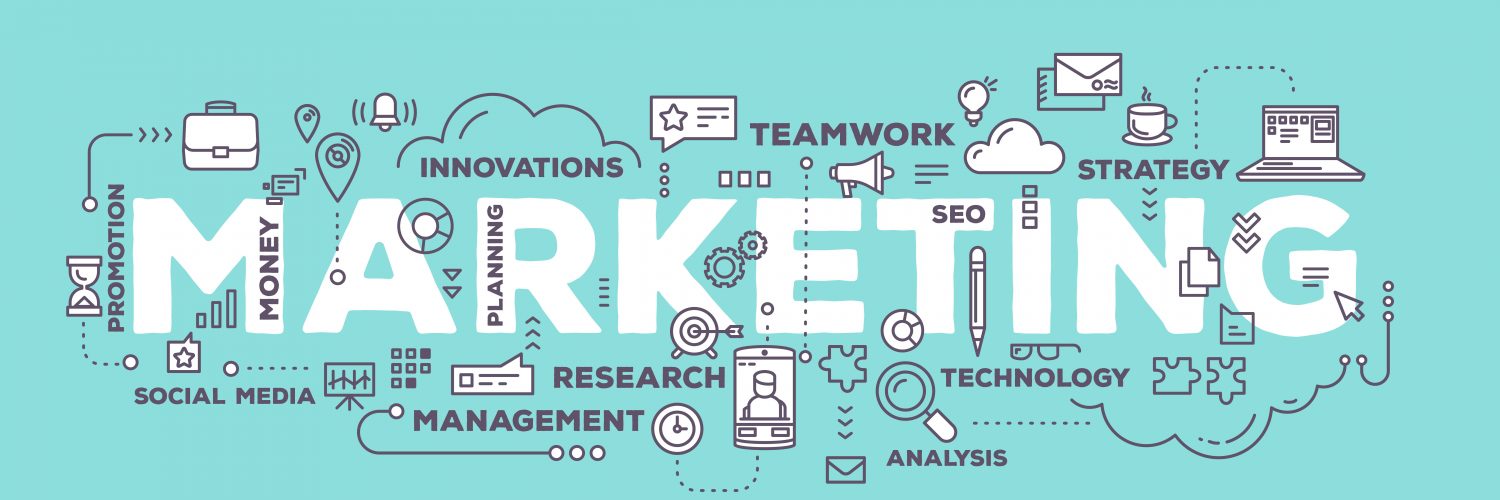

If you want marketers to drive change in a business environment dominated by change, you need to make sure they have the right up-to-date skills.
But first and foremost, you need to make sure you understand the value marketers can bring to your organisation.
In our current climate, marketing is not an expendable cost; it’s an essential profit-making investment. To understand the skills you should look for, understanding and accepting this, is a critical first step. But what skills deliver this value, and how do you go about recruiting a marketing professional who has them?
Insight requires analytical skills and data savviness
Despite the hype, the expansion of technology and data haven’t reduced the need for skilled marketers. What they have done is enable qualified marketers to demonstrate the effectiveness of marketing activities, for example, by analysing conversion rates, search engine rankings and attribution modelling. This in turn means they are able to increase the efficiency of these activities.
With more than 4,000 marketing technology products available, finding someone who knows how to collate, interrogate and interpret the relevant data is more important than hands-on technical skills or experience with specific software. However, a good understanding of GDPR and other data protection legislation is vital if you want to avoid the type of ‘data disaster’ two-thirds of chief marketing officers admit to having experienced.
Innovation requires empathy and customer centricity
Whilst the ability to decipher data into insights is important, insights alone won’t drive organisational success. That requires a customer-centric, problem solving ethos, something Sameer Rahman, Chair of the CIM Wales Board, learned quite early on in his marketing career: “Customers can give you the evolution but not the revolution. Marketers need to look at what consumers are struggling with and find a way to solve the problem, not look for direct answers from the consumer.”
Sameer explains that while data can give you a direction, it’s up to the individual to come up with the magic: “You need to bring out and be in touch with their emotions.” This is precisely why technology is not a substitute for an empathetic marketing professional.
Marketers who can challenge assumptions, explore different options and make innovative suggestions can have a huge impact on business growth. They are usually better at adapting to change too.
Strategic direction requires generalist not specialist knowledge
In our recent article for Business News Wales on Why Marketing Generalists are the answer to business growth, we talked about how the elevated strategic importance of marketers has created a shift from specialist to generalist marketing roles.
Having the relevant specialised marketing skills or industrial knowledge in-house can be invaluable, but to drive long-term success it is better to employ a more strategic marketing professional with good generalist knowledge, otherwise known as ‘a T-shaped marketer’.
Sameer says it’s this that has really helped his career. Now Group Director of Data Science at Edit, he explains: “You’ve got to have depth of knowledge in one area, but you need the breadth of commercial awareness, leadership, knowledge of the business and to know about every aspect of marketing to some degree.”
In our experience, specific expertise – in digital marketing for example – is less important than generalist knowledge. The fact that only 39% of senior marketing professionals believe their organisation’s digital strategy is aligned with their business, operational and marketing objectives is a good illustration of why.
Change requires excellent communication and leadership skills
To create change, marketers need to be able to bring people on-board with what they are doing and this means being able to interact with people at all levels of the business and successfully communicate the role of marketing. As Sameer says: “Internal engagement is very important; if marketers don’t make the whole organisation understand the value they bring, they’re going to struggle against the more tangible people.”
By bridging the gap between business functions and improving internal communication, marketers can help increase employee satisfaction, improve productivity and raise the external profile of the company.
Success requires commercial and financial acumen
Commercial acumen is an essential skill if marketers want to demonstrate ROI and, ultimately, prove the value of marketing. Without financial know-how, marketers won’t be able to speak the board’s language or show the impact marketing has on organisational profitability.
As Sameer says, marketers: “need to portray marketing as a profit centre not a cost centre”.
When it comes to finding a marketing professional with these skills, our top tips are:
- Look at potential not perfection: transferable skills are more important than specific industry experience.
- Look for project management experience over direct hands-on experience: no marketer can be an expert at every aspect of marketing.
- Recognise the strategic value of education: professional marketing qualifications can consolidate experience.
- Get proof of the persona: a candidate does not always match the description of themselves on their application.
We’re pleased to able to offer in-depth screening of candidates as part of our recruitment service. If you’re looking for a highly skilled marketing professional, please get in touch to find out how we can help.
To find out how we can work with you, please drop us a line

The recruitment process was excellent. Karen provided me with updates on a regular basis and the level of communication at all points was handled very well. The whole recruitment process was handled extremely efficiently from start to finish.

The recruitment process was seamless. From our initial meeting, when we thought we wanted a certain person, Ita guided us through the type of person we needed initially, and who we would ideally like to recruit for the development of the business. She found us both in quick succession.
Ita’s communication skills are second to none. She kept us informed at every step. I would definitely recommend Sitka.

My experience with Sitka Recruitment was really positive. The team made me feel really valued and took the time to get to know me and career aspirations. I never once felt pressured, just well supported, listened to and understood. I would definitely recommend Sitka to my friends and colleagues.
Once again thank you for your time and ongoing support. Fantastic service and you made the experience so positive. You’re all clearly passionate about what you do and care about you candidates.

The recruitment process was easy, and after our initial conversation with Ita she advised us on how to fine tune the job specification and tailor to to attract the right candidate for our needs. The delivery and recruitment service was swift and Ita kept us informed at every stage of the process.
The candidate we chose in the end was the right fit for our business. They have just passed their probationary period with flying colours and have fitted in like they have always worked for us.

I have always dealt with Karen and have found the recruitment process generally excellent. The calibre of candidates has always been strong and the candidates also show enthusiasm towards the job and company they are interviewing for. I am very happy with the service we receive from Sitka and we have always appointed from the first round of interviews.

Sitka was honest all the way through and went above and beyond to make me feel prepared and ready for the interview. Everything went really smoothly and I had regular communication from Ita who made sure I knew everything I needed to along the way. I felt equally as important to the agency as the client and knew I could trust Sitka to represent me as a candidate.
I just want to say a big thank you to Ita for believing in me and being so supportive from the first LinkedIn message until I started my first week!